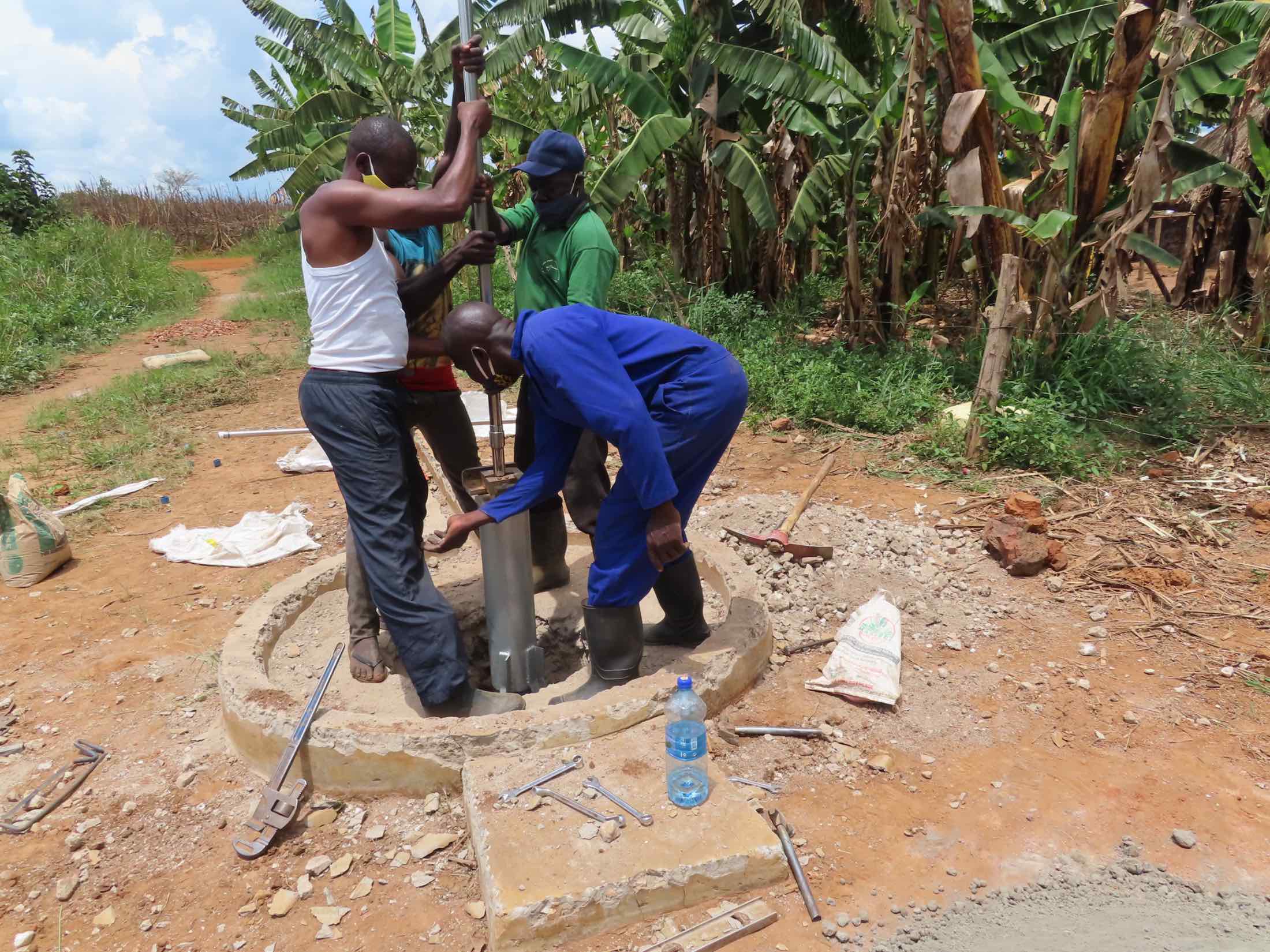We interviewed Bizibu Eryabu, the vice-chair of Kinenabwere Kasamba, about how the water crisis impacts the daily schedule of the 275 community members who live in his community.
"In this village, the majority wake up by 6:30 am, prepare breakfast, and by 8:00 am, they go to the gardens. As we are heading to the gardens, we send the children to the water point to collect water daily. During this COVID-19 pandemic where all schools have been closed, our children have been very helpful, especially in collecting water, which has been a major challenge in most homes," he said.
The main water source is currently a nonfunctional well that has not worked for two years. The alternative source is a well located very far away from the households that does not provide enough water for the population.
"My role at home is to collect water for the family using this bicycle," said Anthony, a young boy, as he pointed to his bike.
"However, due to the current water crisis in this village, we struggle with the bigger boys who bully us, and we end up delaying at the source. My parents understand the situation and don't punish me, even when I am late at the water point. However, the situation is not good for me due to the distance I have to ride every day to collect water."
The most common livelihood in this community is farming. People mainly practice subsistence farming with a few who own big chunks of land that grow sugarcane for sale. A few people run petty trading businesses at the market centers.
Afternoons are often spent tending to gardens and going to the market. This area has one of the busiest trading centers with many immigrants living and working here as well. The immigrants are mainly from the eastern part of the country, having migrated to come and settle in this area.
What We Can Do:
Rehabilitated Well
We are going to restore water to the broken-down borehole. Since this water point is located at the center of the village and easily accessible by the majority of people, unlike the springs which are located at the far ends of the village, when this borehole is restored to its original status, it will provide the community with easy access to clean and safe water. We will remove the old pump, clear out the well, reinstall a new stainless steel pump, and build a new well pad to protect the water.
Training
Training’s main objectives are the use of latrines and observing proper hygiene practices since these goals are inherently connected to clean water provision. Open defecation, water storage in unclean containers, and the absence of handwashing are all possible contaminants of a household water supply. Each participating village must achieve Open Defecation Free status (defined by 1 latrine per household) before the pump installation for a shallow hand-dug well.
This social program includes the assignment of 1 Community Development Officer (CDO) to each village. The CDO encourages each household to build an ideal homestead that includes a latrine, handwashing facility, a separate structure for animals, a rubbish pit, and a drying rack for dishes.
We also implement the Community-Led Total Sanitation (CLTS) approach with each of our village partners. This aims to improve the sanitation and hygiene practices and behaviors of a village. During these sessions, village leaders naturally emerge and push the community to realize that individual households' current practices – particularly the practice of open defecation – are unhealthy and affect the entire village. CLTS facilitates a process in which community members realize the negative consequences of their current water, sanitation, and hygiene behaviors and are inspired to take action. Group interactions are frequent motivators for individual households to build latrines, use the latrines, and demand that other households do the same.
Improved Sanitation
The aim is that all households own an improved latrine. Many households do not use a latrine but use the bush. Due to open defecation, feces are spread all over the village. This leads to waterborne diseases and contamination of groundwater and surface water. Our aim is that the community can live a healthy life free of preventable diseases. We endeavor that people will have both access to sustainable, clean water and access to sanitation at the end of our presence in the community. We have now organized families to form digging groups for latrine construction and empower them with the tools they need.

 Borehole Well and Hand Pump
Borehole Well and Hand Pump
























